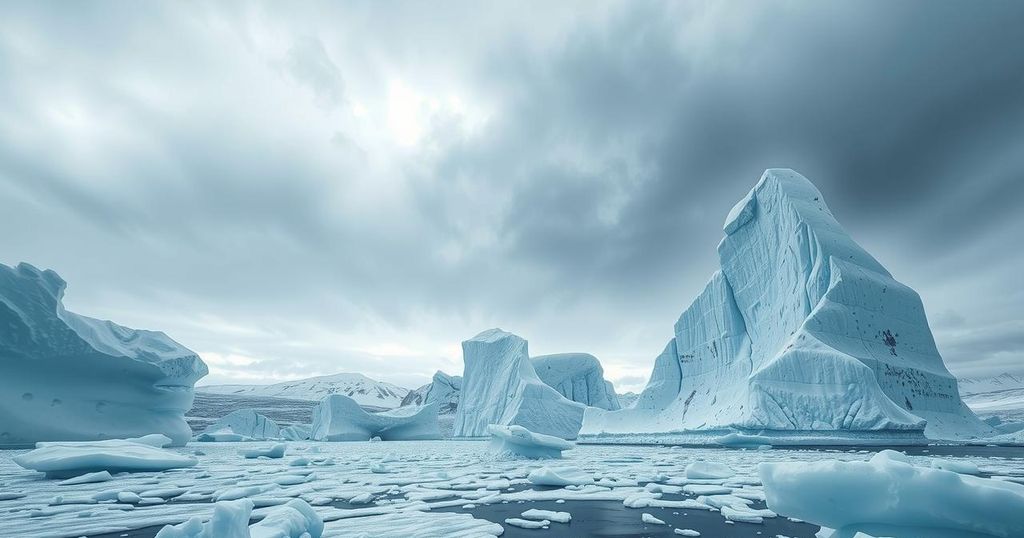Urgent SOS from Antarctic Scientists: Allegations of Assault and Threats
Scientists stationed at South Africa’s Antarctic research base report physical and sexual assaults, along with death threats from a colleague. An email to authorities highlights fears for safety, with the South African government acknowledging the incident and indicating the necessity for action. Rescue operations are complicated by extreme weather, as the team remains in isolation until December.
A group of scientists at South Africa’s Antarctic research base, Sanae IV, has urgently reported incidents of physical assault, sexual assault, and death threats from a colleague. They reached out for immediate help via email, citing that they are isolated, about 100 miles from the ice shelf and over 2,600 miles from Cape Town, with the onset of impending winter storms limiting their ability to leave for the next ten months.
The email, initially reported by The Sunday Times, details a troubling environment, where one individual has allegedly assaulted a colleague and threatened further violence. The ten-member team expressed serious concerns about their safety, indicating that the accused poses a threat to all members, with one report of sexual assault included.
The South African government has confirmed that an assault did take place at the station, noting prior complaints of inappropriate behavior. Minister of Environment, Dion George, confirmed awareness of the incident and mentioned that he is weighing options for action.
The email referred to by the newspaper voiced the gravity of the situation: the behavior of the accused has escalated to alarming levels, with reports of physical assault and threats against a colleague. The sender emphasized a constant fear for their safety, stating, “I remain deeply concerned about my own safety, constantly wondering if I might become the next victim.”
Further details shared in the email described the aggravation of tensions within the confined quarters of the base, resulting in verbal and physical altercations. It has been noted that multiple concerns regarding the accused were raised upon the team’s arrival in late December aboard the SA Agulhas II ship.
The South African Environment Ministry indicated that operations were normal prior to the ship’s departure in early February, with the first report of the incident coming later in the month. A government minister is currently managing the situation, and it has been reported that the accused is cooperating with psychological evaluations and has remorsefully issued an apology to the victim.
Challenges in conducting rescue operations in Antarctica are significant due to extreme weather conditions, with potential evacuation efforts complicated by sub-zero temperatures and strong winds. While violent occurrences are uncommon at research stations in Antarctica, there have been documented incidents in the past, underscoring that tensions can arise even in remote scientific settings.
In conclusion, the situation at the South African Antarctic base highlights the potential dangers associated with remote scientific research environments. The scientists’ urgent plea underscores the need for effective measures to ensure their safety, given the allegations of serious misconduct by a colleague. The South African government is now faced with the task of addressing the issue while considering the complexities of the Antarctic region’s harsh conditions, reinforcing the importance of safeguarding personnel in such isolated locations.
Original Source: www.indiatoday.in




Post Comment